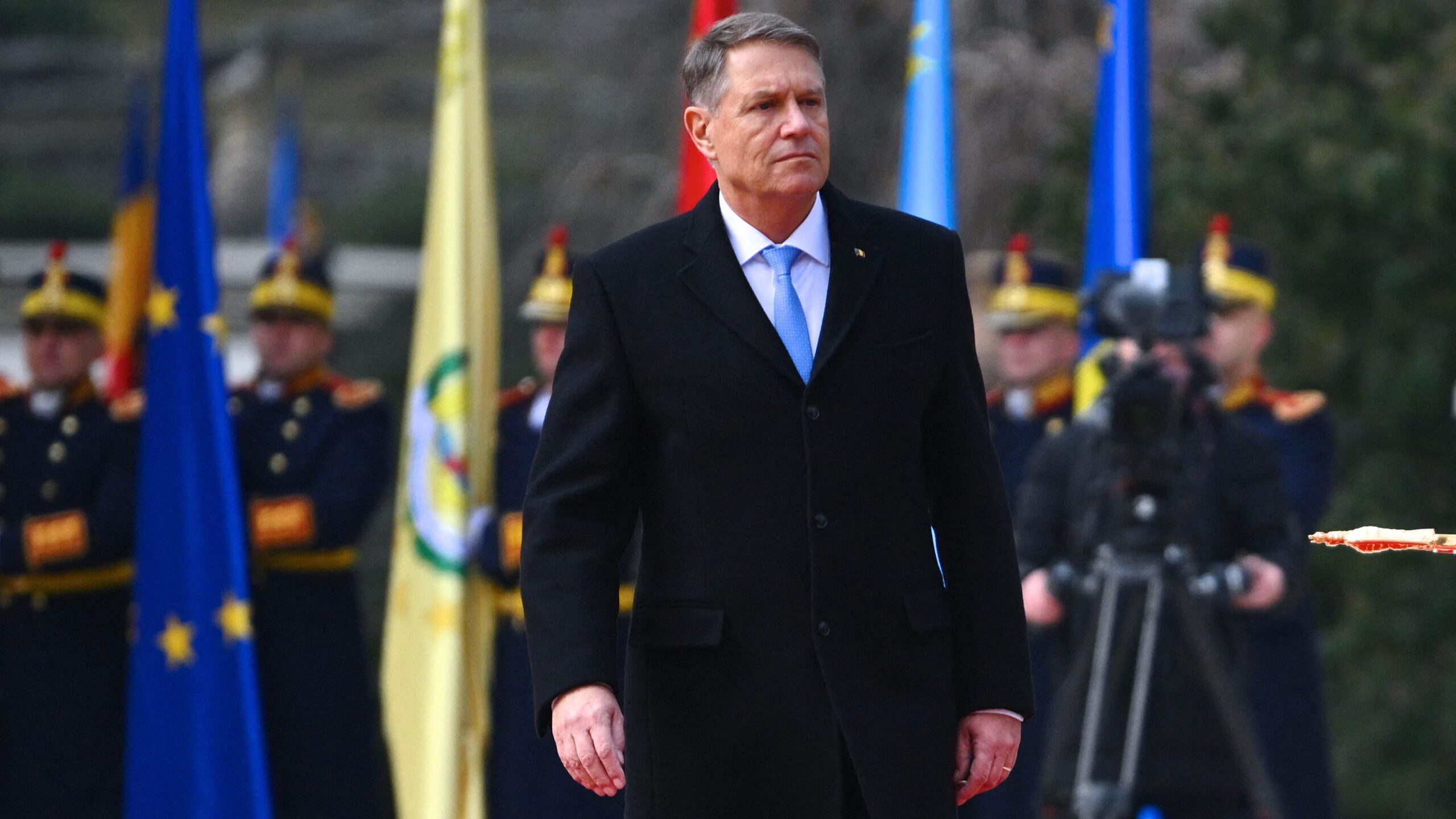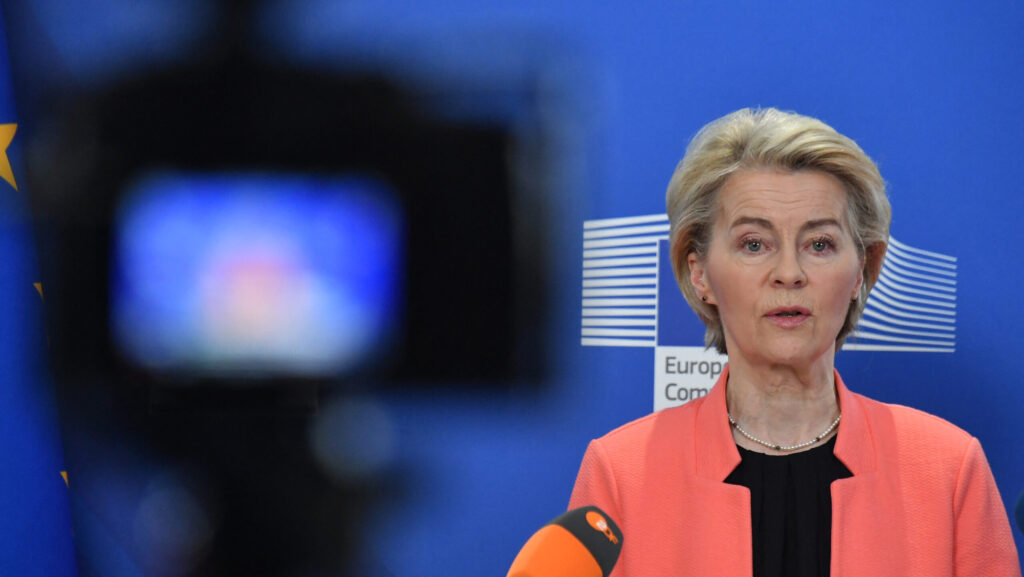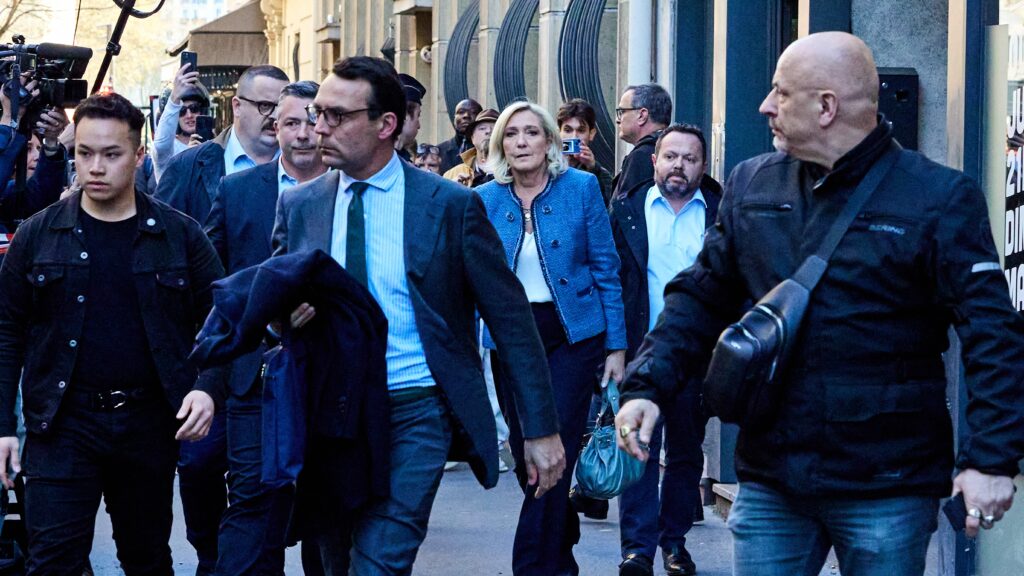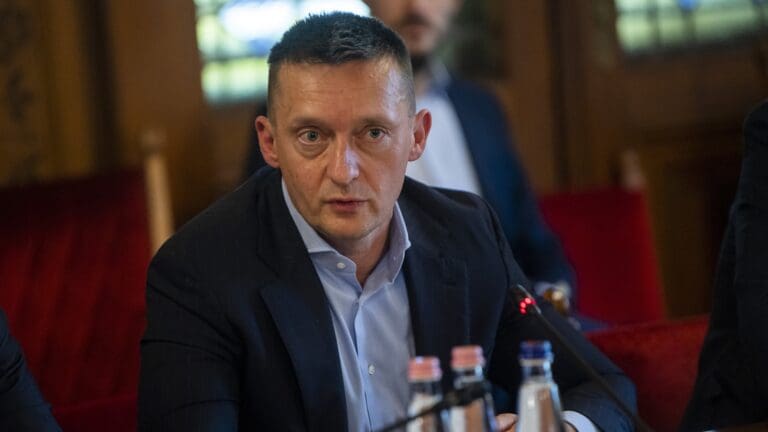Earlier this week Romanian President Klaus Iohannis resigned from his post. His decision to step down followed pressure from the parliament, which was pursuing an impeachment process against him. The controversy was sparked by the Romanian constitutional court’s decision last year to cancel the Romanian presidential elections and—as no new president was elected—lengthen Klaus Iohannis’ term in office. Iohannis has already served two terms as president; he has been in office since 2014.
The constitutional court cancelled the election due to alleged Russian meddling into the campaign. The decision came after the first, but about 48 hours before the second round of the presidential election. The results of the first round were entirely nullified, and so a rerun was ordered. The first round of voting was claimed by Călin Georgescu. As neither of the candidates won the absolute majority of the vote, Călin Georgescu was supposed to compete with Elena Lasconi in the second round, which was eventually cancelled. Independent Georgescu claimed 23 per cent, while Lasconi, president of the liberal Save Romania Union (USR), secured 19 per cent of the vote.
After the second round was cancelled, Lasconi was first to criticize the constitution court’s move. According to Radio Romania Actualitati, she said: ‘Today is the moment when the Romanian state has trampled on democracy,’ adding: ‘We should have gone ahead with the vote. We should have respected the will of the Romanian people, whether we like it or not; legally and legitimately, nine million Romanian citizens, both at home and in the diaspora, have expressed their preference for a particular candidate by voting. We cannot ignore their will.’ Georgescu also called out the decision, calling it a ‘formalized coup d’etat’, adding that: ‘The rule of law is in an induced coma and justice, subordinated to political orders, has practically lost its essence; it is no longer justice, it is at the behest. In such a state we are no longer talking about justice, we are practically talking about a simulacrum that betrays the principles of democracy.’
Now-resigned Iohannis was also involved in making the aforementioned allegations. Shortly after the first round of elections the then President Iohannis declassified intelligence documents that discussed foreign interference in the elections. The documents alleged that 800 TikTok accounts had been activated just before the election and that they had supported Călin Georgescu’s campaign. Albeit these reports did not definitely say that the meddling effort managed to actually sway the election in Georgescu’s favour, they suggested it. Shortly before the election Georgescu was little known in the country; it is believed that his quick rise to national fame was mostly because of his online presence. Shortly after the vote in a televised address President Iohannis claimed that the ‘campaign was illegally supported from outside Romania’ and that it is a ‘matter of national security’. Moscow denied meddling into the Romanian democratic process.
Critics of the constitution court’s decision to nullify the election highlighted that—albeit the presidential election was invalidated—the country’s parliamentary elections (that happened shortly after the presidential one) could go ahead, without the question of Russian meddling being seriously discussed as a threat to the election’s integrity. In Romania the president has a largely symbolic role, so it is highly questionable why would a foreign state invest into rigging the presidential and not the politically more relevant parliamentary elections. The right-wing presidential candidate Georgescu gained 23 per cent of the vote (that is, 2.1 million votes), while on the parliamentary elections the similarly right-wing AUR (Alliance for the Unity of Romanians) party won 18 per cent of the vote. AUR secured the second place on the parliamentary elections, with the PSD (led by Marcel Ciolacu) gaining the largest percentage (22 per cent) of the vote.
Once the court cancelled the elections—so no new president was elected—, it also decided to lengthen the current president’s term in office until a new vote in May 2025. Iohannis faced raising opposition, however, as some viewed his lengthened mandate as illegitimate. On the one hand, the Romanian constitution states that a presidential term is five years, and the president remains in office until their successor takes over. On the other hand, it also makes clear that the presidency can be extended only in case of war or catastrophe. Protests also took place against the decision of him remaining in office, and the legislature initiated his removal as well. Preventing a successful impeachment procedure, Klaus Iohannis stepped down. In his resignation speech he highlighted that Romania’s western partners will not understand the reason why he was forced to step down, and that his departure will damage Bucharest’s relationship with its allies. The country’s interim president will be the Senate’s president, Ilie Bolojan.
Since the election was nullified, Georgescu did not lose but gained popularity – although it is still questionable if the constitutional court will allow him to run as a ban on his candidacy is being considered. The court is considering disqualifying him for undeclared campaign funding. Georgescu’s appeal against the constitutional court’s decision to nullify the election was rejected, so he lodged a complaint to the European Court of Human Rights.
The first round of the rerun election is scheduled to take place on 4 May, while the second round on 18 May. In preparation, Prime Minister Marcel Ciolacu signed a decree ordering candidates to mark their campaign materials and identify their sponsors. Sanctions are also introduced against those social media platforms that are found favouring one candidate or the other.
Related articles:








